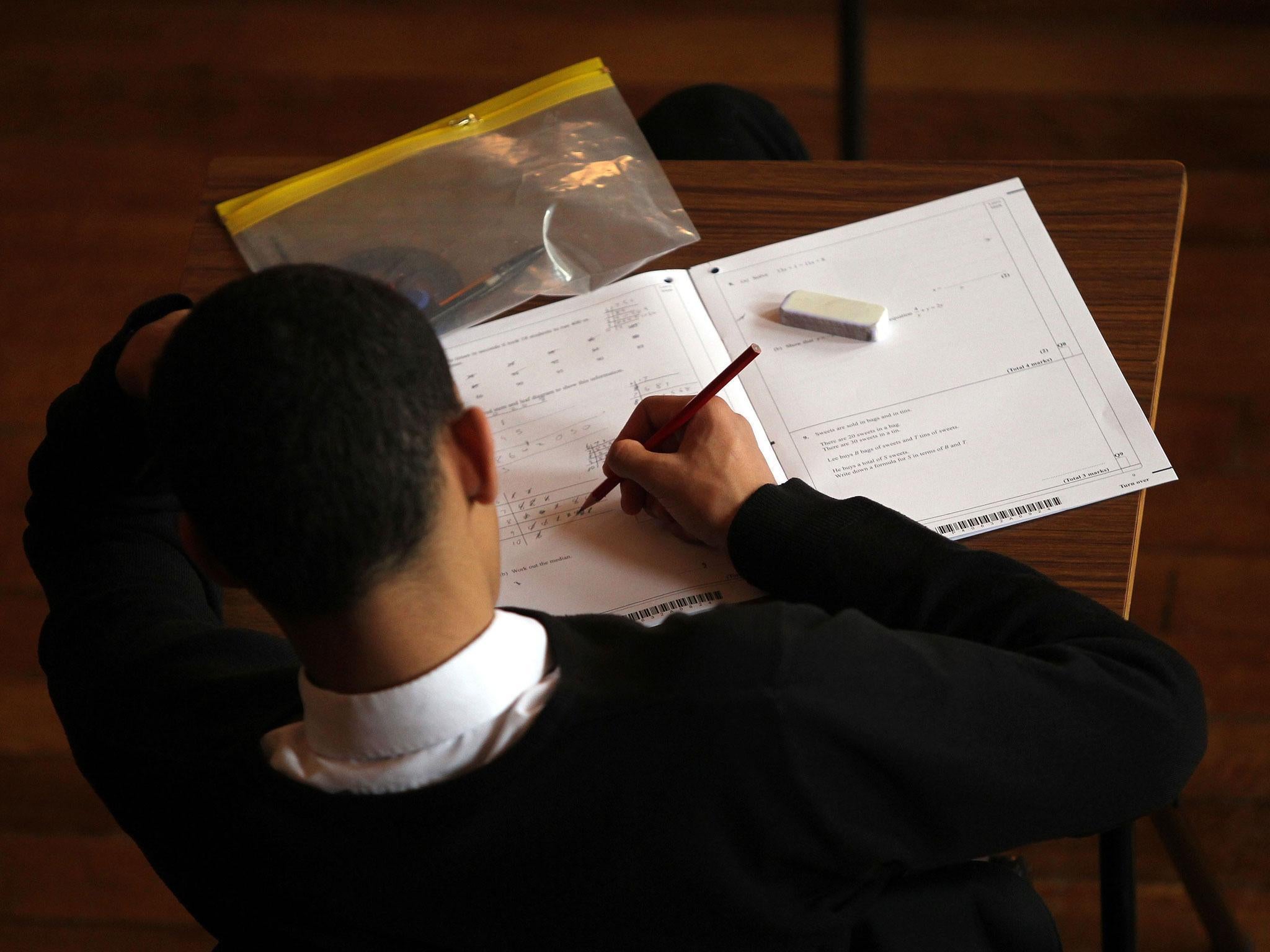More primary school pupils achieve ‘expected standard’ in Sats exams amid criticism of testing regime
'Test-driven primary assessment is damaging children’s mental health,' union says

The number of primary school pupils reaching the expected standard in Sats exams has risen amid criticism that a focus on high-stakes tests is damaging children’s mental health.
Just 35 per cent of 10- and-11-year-olds in England failed to meet the expected level in reading, writing and maths this year, down from 36 per cent in 2018.
Unions, parents and MPs are warning that too many primary schools are dominated by “teaching to the test”, which they argue narrows the curriculum and damages children’s wellbeing.
The National Education Union (NEU), the largest teaching union in the UK, is due to make a decision later this week on whether to push ahead with a possible boycott of the controversial tests.
In 2016, the first year in which the tougher exams were introduced, 53 per cent of Year 6 pupils met the expected standard across all the tests. Now the figure has risen to 65 per cent.
The Department for Education (DfE) says the results show that pupils and schools across England have risen to the challenge of the new, more challenging, primary curriculum.
But both Labour and the Liberal Democrats have pledged to abolish the Sats exams, which are used to hold schools to account rather than pupils, amid reports of children crying and vomiting.
Jeremy Corbyn said he would replace the “regime of extreme pressure testing” with an alternative system that encourages a broad curriculum and “prepares children for life, not just for exams”.
Earlier this week, an indicative ballot, which surveyed 54,500 primary school members of the NEU, showed that 97 per cent backed the teaching union’s campaign to scrap the tests.
Addressing these concerns, education secretary Damian Hinds said children should not feel “under pressure” with the end-of-primary-school exams as pupils do not carry Sats results into later life.
The results released on Tuesday show fewer 10- and 11-year-olds (73 per cent) reached the expected level this year in reading compared to the year before (75 per cent).
In writing and grammar, punctuation and spelling, 78 per cent reached the expected level – the same as last year. In maths, 79 per cent of pupils reached the expected standard – up from 76 per cent.
Kevin Courtney, joint general secretary of the NEU, said more than a third of 11-year-olds will arrive in secondary school in September knowing they have been labelled as below the expected standard.
He said: “This demoralising outcome is the result of policy-makers’ delusion that to measure the performance of our primary school system it is necessary to test each individual pupil.
“Test-driven primary assessment is damaging children’s mental health and wellbeing; it intensifies the stress on teachers. Preparing children for Sats squeezes out other parts of the curriculum.”
Mr Courtney added: “The tide has turned against high-stakes testing. Announcements like today’s will soon be a thing of the past.”
Tiffnie Harris, a primary specialist at the Association of School and College Leaders (ASCL), also called on the government to review the current Sats system to make it “fairer” on children and schools.
She said: “It is not fit for purpose with stakes that are too high and a focus on tests that do not reflect the breadth and richness of the curriculum taught in primary schools.”
Sara Tomlinson, spokesperson for More Than A Score, a campaign group of parents, teachers and education experts, said many pupils have spent months focusing on just English and maths to prepare for the Sats and will have missed out on a broad curriculum.
She said: “It’s not right or accurate to base a school’s overall performance on the test results of 10- and 11-year-olds. There are more supportive ways to assess children and fairer ways to measure schools, without the need to turn pupils into data points.”
Nick Gibb, the school standards minister, said: “The pupils who performed well in these tests will have demonstrated sophisticated grammatical skills such as using the subjunctive, the ability to divide fractions and mastery of complex spellings.”
He added: “These skills will give them the chance to make the most of their potential – this is at the heart of the reforms we’ve introduced across the education system since 2010.
“It’s testament to the hard work and dedication of teachers that we have seen results rising over time despite the bar of expectation having been raised.”
Subscribe to Independent Premium to bookmark this article
Want to bookmark your favourite articles and stories to read or reference later? Start your Independent Premium subscription today.

Join our commenting forum
Join thought-provoking conversations, follow other Independent readers and see their replies